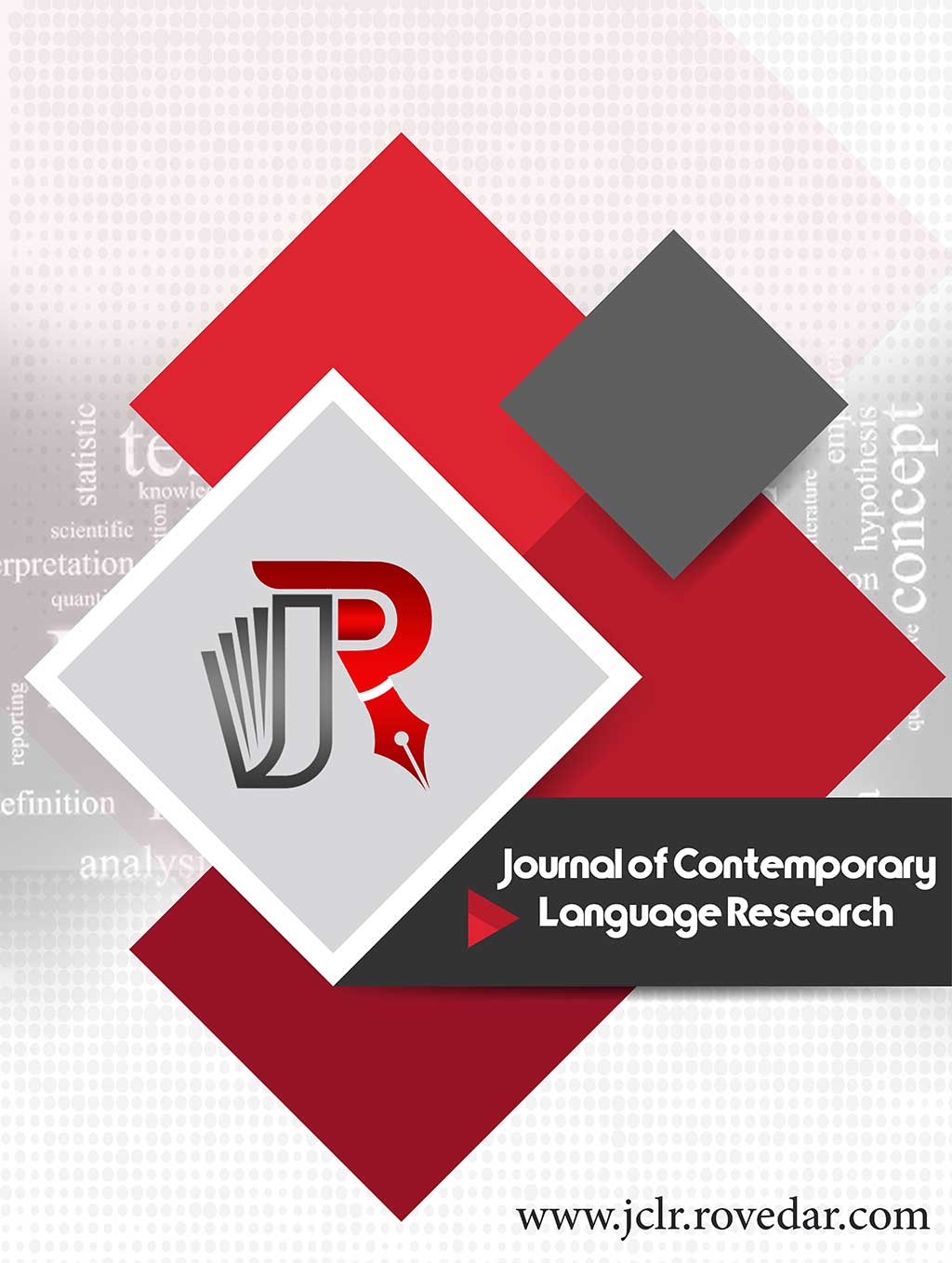The Interrelationships of Iranian EFL Learners' Reflective Thinking, Ego State, and Learning Style
Main Article Content
Abstract
Introduction: Individual differences arise from several factors like affect, behavior, reflective thinking, cognition, and motivation which can crucially bring differences among learners. Ego state and learning style are among these differences. The present study aimed to investigate the interrelationships of Iranian EFL learners’ reflective thinking, ego state, and learning style.
Methodology: To conduct the study, 200 male and female English learners from different universities in Mashhad, Iran, were selected based on convenience sampling. The instruments of the study were three questionnaires, namely Reflective Thinking Questionnaire (Kember et al., 2000), Learning Style Questionnaire (Honey & Mumford, 1986b), and Ego State Questionnaire (Hay, 1996).
Results: The analysis of data revealed that the proposed model had a perfect fit with the empirical data after modification. Moreover, the results of the Pearson correlation indicated that total learning style correlated positively and significantly with students’ reflective thinking. Moreover, learning style correlated positively and significantly with internal parent and internal adult.
Conclusion: The findings indicated that internal adult is a significant positive predictor of all four learning styles.
Article Details

This work is licensed under a Creative Commons Attribution 4.0 International License.
References
Alavi, S., & Toozandehjani, H. (2017). The Relationship between Learning Styles and Students’ Identity Styles. Open Journal of Psychiatry, 7(2), 75818. https://doi.org/10.4236/ojpsych.2017.72009
Bang, H. (2009). Relationship of wisdom and ego-identity for Korean and American adolescents. (Unpublished doctoral dissertation). Oklahoma State University, USA.
Berne, E. (1961). Transactional analysis in psychotherapy: A systematic individual and social psychiatry. Pickle Partners Publishing.
Boud, D., Keogh, R., & Walker, D. (1985). Reflection. London: Routledge.
Coffield, F., Moseley, D., Hall, E., & Ecclestone, K. (2004). Learning styles and pedagogy in post-16 Learning: A systematic and critical review. Wiltshire: Learning and Skills Research Centre. Available at: http://www.voced.edu.au/content/ngv13692
Costa, A. L., & Kallick, B. (Eds.). (2008). Learning and leading with habits of mind: 16 essential characteristics for success. ASCD, US.
Dewey, J. (1997). How we think. Courier Corporation.
Erikson, E. H. (1968). Psychoanalysis and Theories of Man. (Book Reviews: Identity: Youth and crisis; Childhood and society 1950). Science, 161(3833), 257-258. https://doi.org/10.1126/science.161.%203838.257
Fahim, M., & Samadian, T. (2011). Sensory style preference of EFL students in Iran. Theory and Practice in Language Studies, 1(6), 644-665. Available at: https://www.academypublication.com/issues/past/tpls/vol01/06/10.pdf
Fleming, N. D., & Mills, C. (1992). Helping students understand how they learn. The Teaching Professor, 7(4). 44-63.
Hay, J. (1996). Transactional analysis for trainers. Sherwood: Sherwood Publishing.
Hlas, A. C., Neyers, K., & Molitor, S. (2019). Measuring student attention in the second language classroom. Language Teaching Research, 23(1), 107-125. https://doi.org/10.1177/1362168817713766
Honey, P., & Mumford, A. (1986). The manual of learning styles (3rd. ed.). Peter Honey.
Jaju, A., & Kwak, H. (2000). Learning preferences of marketing students. In J. P. Workman Jr. & W. D. Perreault Jr. (Eds.), Marketing in a time of great change (pp. 243-250). American Marketing Association.
Joines, V., & Stewart, I. (2007). Personality adaptations: A new guide to human understanding in psychotherapy and counseling. Recording for the Blind & Dyslexic.
Kember, D., Leung, D. Y., Jones, A., Loke, A. Y., McKay, J., Sinclair, K., Tse, H., Webb, C., Wong, F. K. Y., Wong, M., & Yeung, E. (2000). Development of a questionnaire to measure the level of reflective thinking. Assessment & Evaluation in Higher Education, 25(4), 381-395. https://doi.org/10.1080/713611442
Kizilkaya, G., & Askar, P. (2009). The development of a reflective thinking skill scale towards problem solving. Education and Science, 34(154),
bd7a57de7567359c925f0
Kline, R. B. (2015). Principles and practice of structural equation modeling. Guilford publications.
Kolb, D. A. (1984). Experiential Learning: Experience as the source of learning and development. Prentice-Hall. https://nsee.memberclicks.net/assets/docs/KnowledgeCenter/
BuildingExpEduc/BooksReports/27.%20experiential%20learning%20learning%20as%20the%20source.pdf
Mahmoudi, L., & Amirkhiz, S. (2011). The use of Persian in the EFL classroom-The case of English teaching and learning at pre-university level in Iran. English Language Teaching, 4(1), 135-140. https://pdfs.semanticscholar.org/3a75/35931eb2c3e50b8e0590b8972a0dfe17cdb7.pdf
Reid, J. M. (1995). The learning style preferences of ESL students. TESOL Quarterly, 21(1), 87-111. https://doi.org/10.2307/3586356
Revelle, W., Joshua, W., & David, M. (2011). Individual differences and differential psychology: A brief history and prospect. In T. Chamorro- Premuzic, S. von Stumm, & A. Furnham (Eds.), The Wiley-Blackwell handbooks of personality and individual differences (pp. 33-38). Blackwell Publishing. https://personality-project.org/revelle/publications/hid_overview. final.pdf
Rossi-Le, L. (1995). Learning styles and strategies in adult immigrant ESL students. Learning styles in the ESL/EFL classroom, 2(7), 118-125.
Shih, C., & Gamon, J. A. (2002). Relationships among learning strategies, patterns, styles, and achievement in web-based courses. Journal of Agricultural Education, 43(4), 1-11. https://jae-online.org/attachments/article/364/43-04-01.pdf
Witkin, H. A. (1973). The role of cognitive style in academic performance and in teacher-student relations. ETS Research Bulletin Series, 1, 1-58.
Woollams, S., &. Brown, M. (1979). TA: The total handbook of transactional analysis. Prentice-Hall. https://www.worldcat.org/title/ta-the-total-handbook-of-transactional-analysis/oclc/4664467

